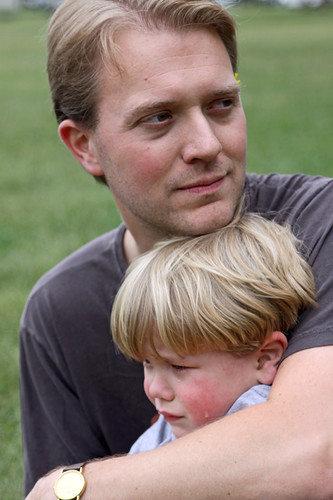We tend to think that we operate out of our values as if it’s like a default setting on a washing machine.
The truth is, at best, we are consistent at that stuff only sometimes. Not because we are horrid cads, but because we get busy.
If you are a person of faith or want to live from a set of important values, you can’t take this modus operandi for granted.
You have to do some groundwork. (I’ll get to specifics in a moment.)
First, the short story of Jackie will help us out.

Jackie is tax consultant. She had worked for a national brand firm in town and was striking it out on her own–almost by accident and not all at once.
It started when she kept noticing that some of her friends and family members didn’t know what they were doing. In a panic, usually at the end of March, they started asking her for help. Most of them didn’t know enough to get the best refund, and she heated the idea of that.
She picked up some side work, and within two tax seasons she had herself completely booked at tax time. About 20% of those clients needed accounting help throughout the year for their small business. She also found a few non profits clients too. She really needed help by the third year and had left her other job by then.
Like you would expect, she hired help and plunged into her work.
I didn’t put too much weight into the particulars of hiring. I was so busy with the details of getting the work done. So, the most important thing got steamrolled by the urgency of my work.
Things started going badly.
Out of the 3 part-time workers, only one of them actually had the same values as she did. She realized this too late and it created friction and a tense working environment. One person left and started bad-mouthing her in her small town. The other position seemed like a revolving door of employee turnover. She almost quit the whole thing. It was keeping her up a lot at night.
Jackie didn’t have Human Resources Training or organizational management training. She just had a bunch of work and she was good at those skills. She needed to clone herself.
It didn’t come to that, of course.
Fortunately, a mentor gave her some great advice. She said,
Back up a bit. Sit down and put your most important values and business aims down with ink on paper. It’ll work like a compass or GSP. It will help with both the route and destination.
It worked. Her commitment statements guided all her business decisions after that. Hiring, training, working with clients, getting new clients, and getting her little company running smoothly needed that solid foundation.
It’s a great lesson. If you aren’t using a GPS you’re going to get lost.
Before you take on side work. Before you hire someone. And most importantly, before you get busy, do the ground work so that your priorities and core guiding principles are something that flow out and throughout all your interactions, not get tacked on afterword.
If you value honesty, joy, compassion, and persistence, for instance, make them the anchor for all the skills you execute and all the projects you take on.
Have you initiated your GPS? Do you have your guiding principles on paper and operate from them?
I hope that was helpful.
Do you know someone who might need this advice?
Please share!






 I really enjoy reading
I really enjoy reading